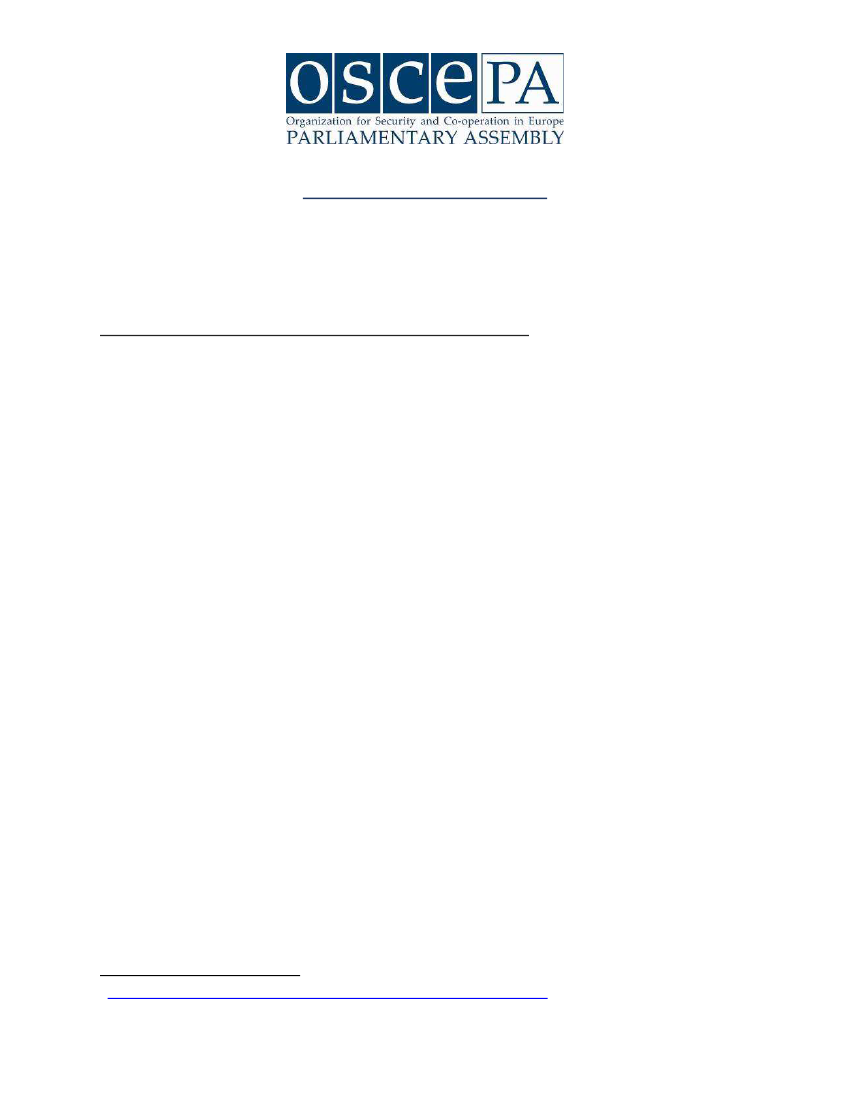
OSCE PA
–
COVID COMPACT
READAPTING THE OSCE PA TO CHALLENGES IN THE TIME OF COVID-19 PANDEMIC
REPORT BY SECRETARY GENERAL ROBERTO MONTELLA
28 April 2020
1. Impact of COVID-19 and immediate OSCE PA response
Since the very outbreak of the COVID-19 pandemic, the International Secretariat has been
closely monitoring the situation, with the two-fold aim of ensuring the safety and well-being
of all staff as well as the continuity of our key mandated operations. This has been conducted
in close coordination and consultation with the authorities of our two host countries,
Denmark and Austria, as well as with the OSCE executive structures, and in particular their
COVID-19 task force then replaced by the OSCE Crisis Management Team.
As of 12 March, both the Copenhagen Headquarters and the Vienna Liaison Office have been
temporarily closed and all staff switched to teleworking modality from home, which proved
successful and is granting full business continuity to our work. To strengthen our
telecommuting capabilities, we have also purchased the WEBEX Software, a professional
online platform for business meetings. This has, for instance, ensured effective Bureau and
staff videoconferences. Further software, including with language interpretation options, are
currently under consideration.
The ongoing spread of the pandemic has forced us to progressively postpone or cancel
almost all our planned activities at least until the summer. This included the cancellation of
our main 2020 event, the PA Annual Session in Vancouver, as announced in a joint
communique by our President and the Head of the Canadian Delegation
1
. With the situation
rapidly evolving and uncertainty continuing to rule, it is difficult to predict when regular
activities will resume. The Secretariat will continue to monitor the situation and hopes to
reschedule in the Autumn some of the activities initially planned for the Spring. Instead, the
PA Autumn Meeting in San Marino has been unfortunately already called off.
Unfortunately, a heavy global recession with massive effects on the OSCE region has to be
expected. The PA stands ready to lend a contribution to addressing the economic hardship
which will principally affect the most vulnerable segments of society. Therefore, together
with our Treasurer, we have decided to embody the foreseeable combination of economic
recession and subsequent austerity policies by Governments and Parliaments by requesting
no increases to the 2020/2021 PA budget and additionally using savings of the current
9/
budget as discount for States’ contributions.
1
https://www.oscepa.org/meetings/annual-sessions/upcoming-annual-session
1